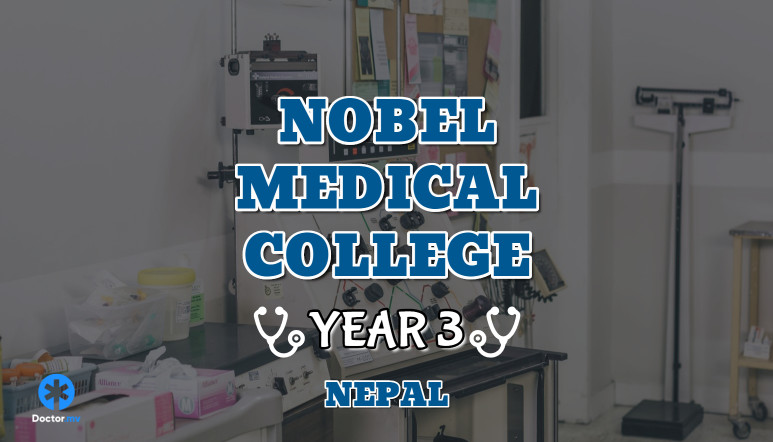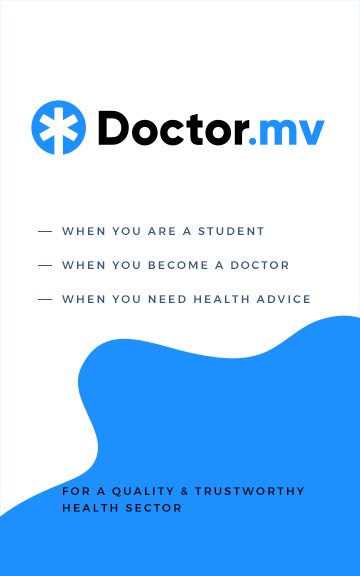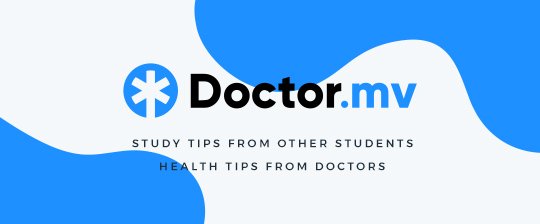I'm ZAINA ZUHUDHEE and this is My Medical Student Life

Nabeel Ibrahim
Published on: 24/03/2019
Nepal Third Year Nobel Medical College Fathimath Zaina ZuhudheeUniversity
Nobel Medical College
Current Year
Third
Medical Specialty Interested in
Surgery / Internal Medicine
One Word that Describes You
Helpful
Most Intriguing subject in Medical School
Surgery
What was your path to Medical School like?
I finished my O levels from Muhibbuddin School (now known as Sharafuddin) and A levels from Addu High School. After graduating, I tutored kids at home and worked in a travel agency in my island for about 8 months.
For as long as I remember, I have always wanted to be a doctor due to my interest in science and the medical field. So, while working in the travel agency, I was looking into options on how to get into Medical school.
As soon as I got my A level results, I decided to apply for the tertiary student loan scheme but wasn't so lucky on the first try. However, I didn't give up and applied for the second time and I am glad I did.
After receiving the loan scheme, I set out searching for colleges to apply and I found out about Nobel Medical College through a cousin of mine. I came to know about Glonet Mv; an agency that provides career guidance to students, helps in finding the placements and sending students to this college.
So, it was very easy to apply after providing them with the required documents. They guided us in every way throughout the journey to come here and helped us to settle down a few months before college started.
Also, we had to prepare for the entrance exam after coming here. It was really difficult since what we studied in A levels and what they study here in Nepal were completely different. Those months were spent on completely racking your brain, going through sample papers and studying them.
After some very frustrating days, I gave the exam and Alhamdhulillahi, got in to the college.
What was the biggest difference between your expectations of entering Med School when you were doing A'level, and the actual experience of being there?
The difference in the education system and studying pattern is what really got to me. Our A levels and what students study in Nepal during Higher Secondary is completely different.
For instance, I noticed that during the first few months of college, they knew more information regarding the human body. They were able to name the tarsal bones of the body smoothly in Anatomy while we had no clue regarding it. So, there were a lot of catching up to do in the first year.
Also, I really came to know that the Med School journey is never a smooth ride once I started experiencing it myself.
In high school, we could score good marks if we did past papers and went through the teacher's notes. However, here, the professors only teach a small amount of what you actually need to study. They want you to go back and study on your own.
Plus, sometimes depending on the lecturer, they want you to study the topic beforehand. When you come to classes they will fire questions at you like anything. So, you have to be ready when you go.
Therefore, I had to completely change my method of studying which was really challenging at first. A lot of self studying and research needs to be done now unlike before. And, if a class is canceled, that topic will not be taught most of the time and we have to study it from A to Z on our own.
Moreover, the Med School syllabus is huge and it feels like you will never be able to complete it fully. You need to invest a lot of time studying and going through books now, unlike what we really used to do before.
Also, being in a foreign country away from parents was a big challenge too. The difference in the culture and environment is huge.
Although Hindi is a spoken language around here, there are people who don't even understand Hindi and who only speak Nepali. So, the language barrier proved to be troublesome while interacting with patients. Therefore, I had to learn and get to know the Nepali language and thankfully, I am getting the hang of it now.
How is your daily routine like?
Our classes start at 9 am so I usually have a light breakfast half an hour before and make it there on time. Our hostel is inside the hospital premises so it takes only about few minutes to get there.
Since I am in my 3rd year now, we have conferences and postings regarding the specific subject (depending on the group you are in) every morning from 9 am to 12 pm.
During conferences, doctors and residents discuss the most recent cases in their department and you listen and take notes if necessary. Postings are like practicals, where you learn about the different procedures, interact with patients and get all the information in the clinical aspect.
Afterwards, theory classes start from 12 pm and go on till 5 pm (or 4 pm on some days), with a break hour in between from 1 pm to 2 pm.
Upon reaching hostel, I take about an hour of rest, freshen up and prepare dinner as we have to cook on our own. Since I have roommates with me, we divide the work among us to make it quick.
After dinner, at around 8.30 pm, I go through the notes given on that day and see if there is anything which I have not understood from it. If I have any doubts, I prefer to look it up on the internet, especially YouTube and see if there are any videos which can be quite useful. I take help from channels like KenHub, Ninja Nerd Science, Osmosis, Armando Hasudungan and more.
I the go through the textbook (if I am not completely satisfied) to completely finish off reading the topic. I also find lectures of Dr. Najeeb informative though I prefer to learn from them on Saturdays (the only holiday we get) or any other holidays in between.
In addition to this, I also have to prepare for the classes of the next day. So, if there is a specific topic which the lecturer wants us to study, I go through it.
Furthermore, depending on the department we are posted in, we will have to study for it for the next day as well. For instance, now I am posted in Anesthesia department and they have a schedule of the topics which they are going to teach everyday in the postings.
So, I try to learn what they are going to teach before going to the hospital. I must say that going through the topic beforehand really helps you understand when the lecturer actually teaches it. It also helps you to ask more questions regarding it.
By this time, it would be around 11 pm and I would call my family and talk with them. I usually call it a night at around midnight.
Since Saturday is the only holiday we get in the week, I like to take the Friday night off from studies. I usually go out with my roommates and/or watch some K-series at home that night. And, I prefer to sleep in on Saturdays and get some studying done later on in the day.
Mostly, I try to learn the topics which I have missed during that week or those which need extra amount of time (which I don't get on week days). Generally, I tend to prioritize the subject or topic that actually needs more importance that time and depending on that I set out my schedule for studying. It differs from day to day.
Also, if time persists, I try to revise what has been taught in the week. Revising is really important and I find that writing it down helps a lot, rather than only reading and by-hearting the content. This is going to be really useful when exams come since you can go through what you have learnt and written yourself. Also, doing MCQs after you are done with each topic is going to be helpful too.
What are some of the things you will have to give up as a doctor?
As I have heard before, doctors don't really have the time to go out or have a social life. So yes, it is true. I know that I will have to give up some of the exciting things in life like family outings, friend's gatherings, celebrations and certain joys of life. Moreover, it is true that you will have less time for family.
However, when you look at the bright side, you are busy doing something which you have the passion for and that ought to push you forward.
Therefore, learning to prioritize is really important. It all depends on how you carry and plan it out.
Why do you think some doctors are happy practicing medicine?
Doctors are doing what they love, which is treating others. Seeing the smile and satisfaction on their patient's faces when they treat them is what brings them happiness and helps them to move forward in their career.
The gratitude which others give, cannot be expressed in words and doctors feel determined to work harder than before. Most importantly, this is a profession which you can work in only if you are really interested.
Also, since the knowledge about the human body and the science of it is always a changing subject, I believe getting to know new information, technologies and methods of treatment will be exciting.
It is their passion for all of this which makes them work happily.
Name your favorite medical text book.
SRB's Manual of Surgery by Sriram Bhat M (5th Edition)
How do you help people that don’t want to be helped?
In the medical field, if someone doesn't want to be helped, try to be patient with them. Give reason and make them change their mind slowly. Explain it eagerly to persuade them. Let them know about the pros of it. Never push anyone to do anything they don't want to, be it your colleague or patient. Keep an open mind and try to understand why they are behaving that way.
What is the most effective way to study in Medical School?
As I mentioned before, writing down will help you memorize better than only reading about the topic. Drawing diagrams is also going to be helpful. And go through medical videos if you are short on time, preferably. Read from the textbooks if you don't understand after this.
Try to learn on your own when you start a topic first and go for group studies later and explain the topic you learnt to someone else. And, try to squeeze in as much revision time as you can. Revision is of utmost importance. Finally, before exams, do past papers and MCQs.
Do you need High grades to become a decent doctor?
I don't think so.
Even if you have high grades in Medical school, if you aren't really exposed to the clinical phase of the field, your knowledge cannot be applied. It is true that high grades will help you stand out in Med School but in the long run, when you actually become a doctor, it's not going to be useful if you don't have the full hands on experience and don't know how to get things done. In the end, grades don't define you and people are going to see what you do for them only.
Therefore, to become a decent doctor, you need to get as much experience as you can in the field. You should also be considerate of others, and understand and respect the patient's wishes. You need to have good social skills, along with what you have studied and maintain a good rapport with your colleagues as well. This way you will stand out as someone whom the community respects as both a doctor and an individual.
So, it's all about balancing your knowledge and practical skills.
Finally, what is the one tip/advice you want to give to our readers?
If you are a Medical student, I would like to say that you have got this!
Even if things aren't really going according to what you hoped for, know that there are better days ahead. Think of why you chose this profession in the first place. It may seem impossible and difficult (as I also feel, from time to time), but think of the end result.
Work on your own pace and don't try to compare yourself with others. Each one of us is different and unique in our own way.
Don't ever give up!
For those who want to get into this profession, ask yourself if you are really doing this for you or someone else/thing. You should really love and have the passion in this field if you want to keep going.
And, research and check out the college thoroughly before you go. Inquire about the syllabus and teaching system and everything related as well.
Finally, know that if you give your best, anything is possible!
The My Medical Student Life series was created for the sole purpose of helping medical students and aspiring doctors on their journey to become a successful Maldivian Healthcare Professional. Have a suggestion, idea or question? Email us.



Leave a comment
0 Comments